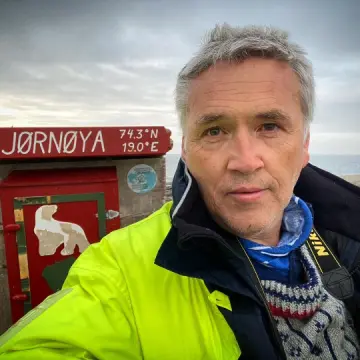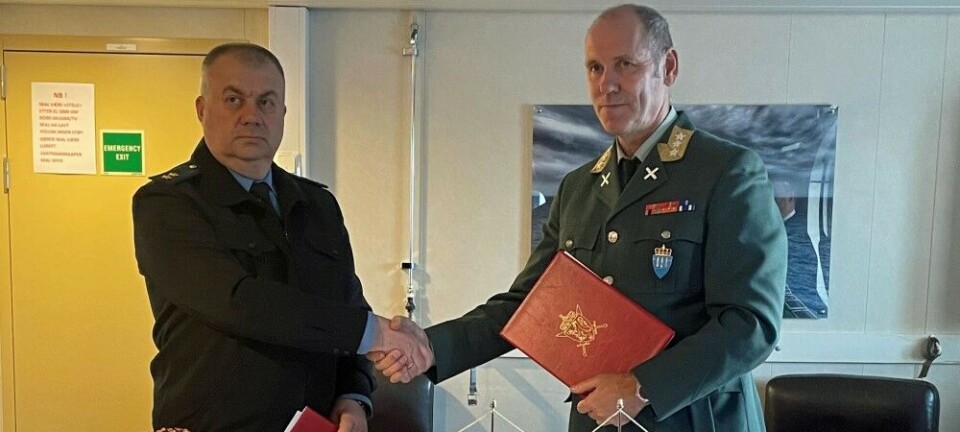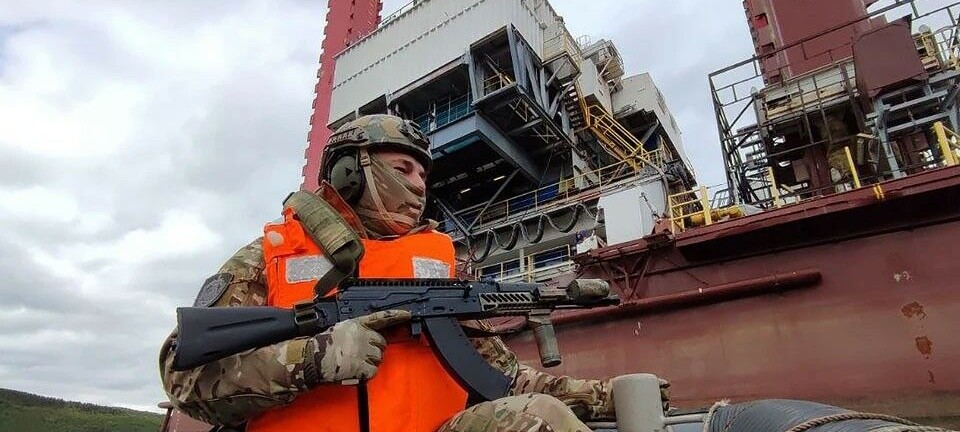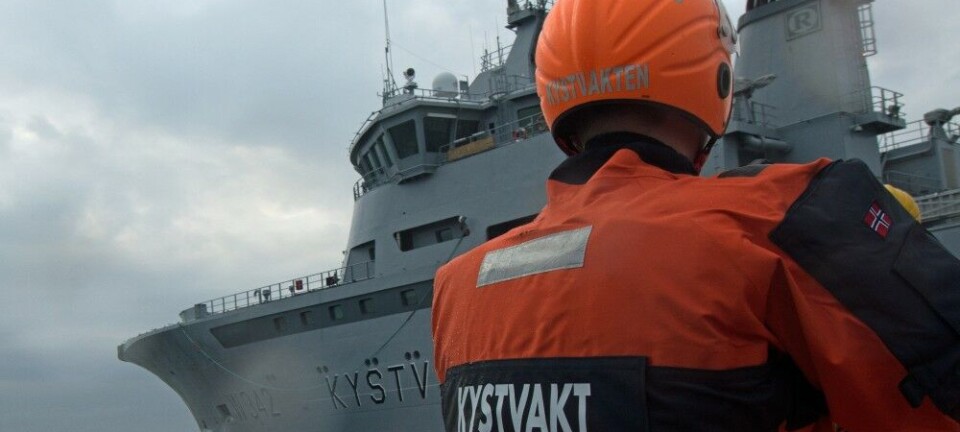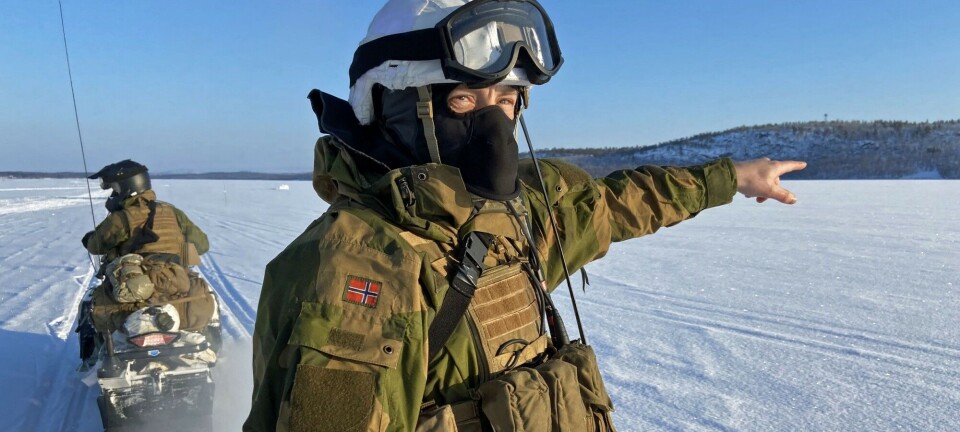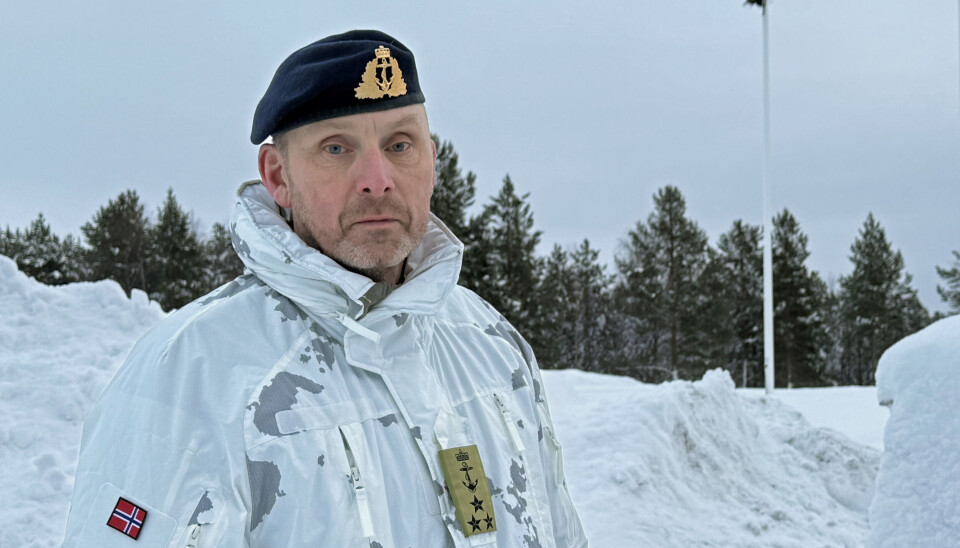
Absurd accusation against Chief of NJHQ hinders annual meeting with FSB border service
A scheduled meeting with FSB's Border Guard Directorate was called off as Chief of Norwegian Joint Headquarters, Vice Admiral Rune Andersen, does not go to Russia.
It is supposed to take place every year. A top meeting which the Norwegian Armed Forces calls a summit. Border cooperation frames the agenda, including topics like land border formalities, search and rescue at sea and fisheries inspections.
Norway and Russia share a 198 kilometers land border and a much longer maritime border in the Barents Sea.
Unlike Finland, which maintain only rudimentary and technical contacts with FSB border guards, Norway wants to carry on in accordance with protocol like it was before Moscow's full-scale invasion of Ukraine.
The Norwegians emphasise that it is crucial for both nations to keep this channel open for communication as it can prevent accidents and misunderstandings in the high north.
Venue for the annual meeting rotates between the Norwegian and Russian side of the border. Some times on board coast guard vessels, other times at the Border Commissioners' offices; in Kirkenes or Storskog and in Borisoglebsk or Nikel.
Annual top meetings have been arranged since 1994.
In 2019, Norway's Coast Guard ship KV Senja sailed into Arkhangelsk. The year after, in 2020, the world was under lockdown due to the pandemic. In 2021, FSB Coast Guard ship Polyarnaya Zvezda called on Kirkenes port. The year after, in 2022, the meeting took place in Borisoglebsk, a few hundred meters into Russia. The 2023 meeting, again, happened onboard a Norwegian Coast Guard ship. That was in early October.
The month after, Vice Admiral Rune Andersen took over as Chief of the Norwegian Joint Headquarters (NJHQ) from Lieutenant General Yngve Odlo who had led the previous top meetings with FSB Border Guards.
The Barents Observer has knowledge about the absurd allegations that is stopping Rune Andersen from going to Russia. We choose not to publish their content. They seem far-fetched, and, despite its serious context linked to Russia-Europe geopolitical tensions, could as well been a copy-paste from a novel by Tom Clancy.
It is not known to us if any official accusation are brought forward by public Russian representatives.
Rune Andersen himself is unwilling to discuss why he is not crossing the border.
"It is not cancelled. Relations with FSB continues as normal," the Vice Admiral said when asked by the Barents Observer in Kirkenes last week why no meetings have been arranged after 2023.
Andersen said the dialogue with FSB is good and the planning of next meeting continues. "We are looking into dates," he noted.
"I am not going there now," Vice Admiral Andersen said.
He added: "The next meeting will probably be on the Norwegian side of the border."
Rune Andersen said "no comments" when asked about the allegations, but he underlined that "we are living in a time with numerous information campaigns."
He made clear that the allegations "are unreasonable and unfair."
On Wednesday last week, the Chief of the NJHQ welcomed UK's Defence Secretary John Healey and Norway's Defence Minister Tore O. Sandvik to overlook the border with Russia.
Minister Sandvik was short when asked about the Russian accusations: "I have no comment to that," he said to the Barents Observer.
Additional to the Joint Headquarter's Chief, the Norwegian delegation that normally take part in the meetings consists of the Border Commissioner, representatives from the Coast Guard, and the Defence Attaché with Norway's Embassy in Moscow.
Except the Defence Attaché, none in the delegation have diplomatic immunity.
While the top border official's meeting was postponed, day-to-day practical cooperation between Norwegian military border guards and the FSB Border Guard personell continues.
Captain Johan Løvrød with the Pasvik border station told the Barents Observer about FSB officers in mid-February being invited to cross the border to overlook the Norwegian military's snowmobile track on the river ice. The deepest part of the Pasvik river forms the borderline between the two countries. Unlike in Russia, where the border region is sealed off with barbed wire fences, Norwegians are allowed to freely move all up to the actual borderline.
"The practical cooperation continues and the relations along the borderline are good," Løvrød said.
Under the Border Commissioners bi-lateral agreement, officials are allowed to visit each other along the border without holding a visa to each other's country.
The Barents Observer has called the Murmansk office of FSB Border Guard Directorate for the Western Arctic. We wanted to get official comments on the Russian claims against the Vice Admiral that hinders the top meeting from taking place on the east side of the border.
"Send your question in written," the voice in the phone replied. Our email remains unanswered.
Last August, Andrei Kudimov took over as Chief of the FSB Border Guard Directorate for the Western Arctic which includes FSB's Coast Guard operations in the Barents Sea.
According to newspaper Pravda Severa, Kudimov came from the position as head of FSB's Border Guard service in Abkhazia, a republic that Moscow recognised as an independent state after the Russian-Georgian war in 2008. FSB took formal control of its frontiers in 2009.
Up north, Kudimov is now on the board of the Murmansk branch of the National Anti-Terrorism Committee.
Kudimov took over after Lt. Gen. Stanislav Maslov was appointed Chief of FSB's Border Guard Service in Kaliningrad, news online rugrad informed.
Read more

